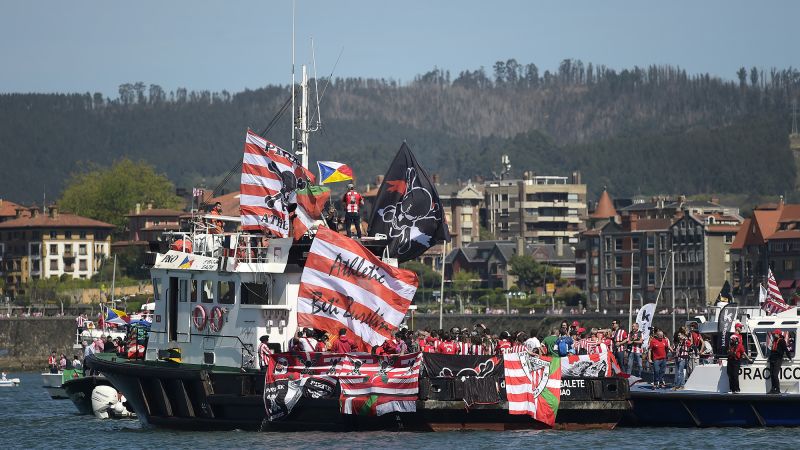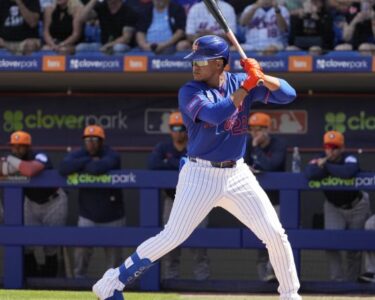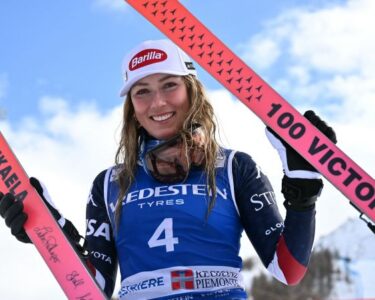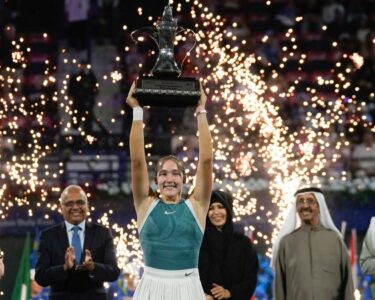CNN
—
Spanish soccer club Athletic Bilbao finally put an end to decades of heartbreak at the weekend and now the team and its fans are about to enjoy a unique celebration on water.
So long has it been since the Lehoiak (‘Lions’ in Basque) last won a major trophy – 40 years to be exact – that the famous river barge it used to parade the club’s last title had since been retired to the city’s maritime museum.
However, ‘La Gabarra’ – as the barge is called in Basque – is touching the water once again after Bilbao lifted the Copa del Rey on Saturday following a tense penalty shootout victory over Mallorca, the club’s first major trophy since it won the league and cup double in the 1983-84 season.
Though it is now a longstanding tradition, it is one which has only occurred twice before in the club’s history.
The barge made its debut in 1983 after Athletic won the La Liga title for the first time in 27 years, with an estimated one million people lining the banks of the River Nervión to celebrate.
One of the club’s directors, Cecilio Gerrikabeitia, decided that celebrating the triumph on the balcony of the City Hall – as had been tradition until that point – would not suffice as he sought a way to lift the city’s spirits following the economic turmoil it had been experiencing.
In the 1980s, the city was beginning to move away from the heavy industrial activity – specifically steel factories and shipyards – that was the bedrock of its economy.
This was accelerated in 1991 when the Basque government agreed to a deal to build a new Guggenheim Museum in Bilbao, which would house some of the famous artwork of the well-known New York museum.
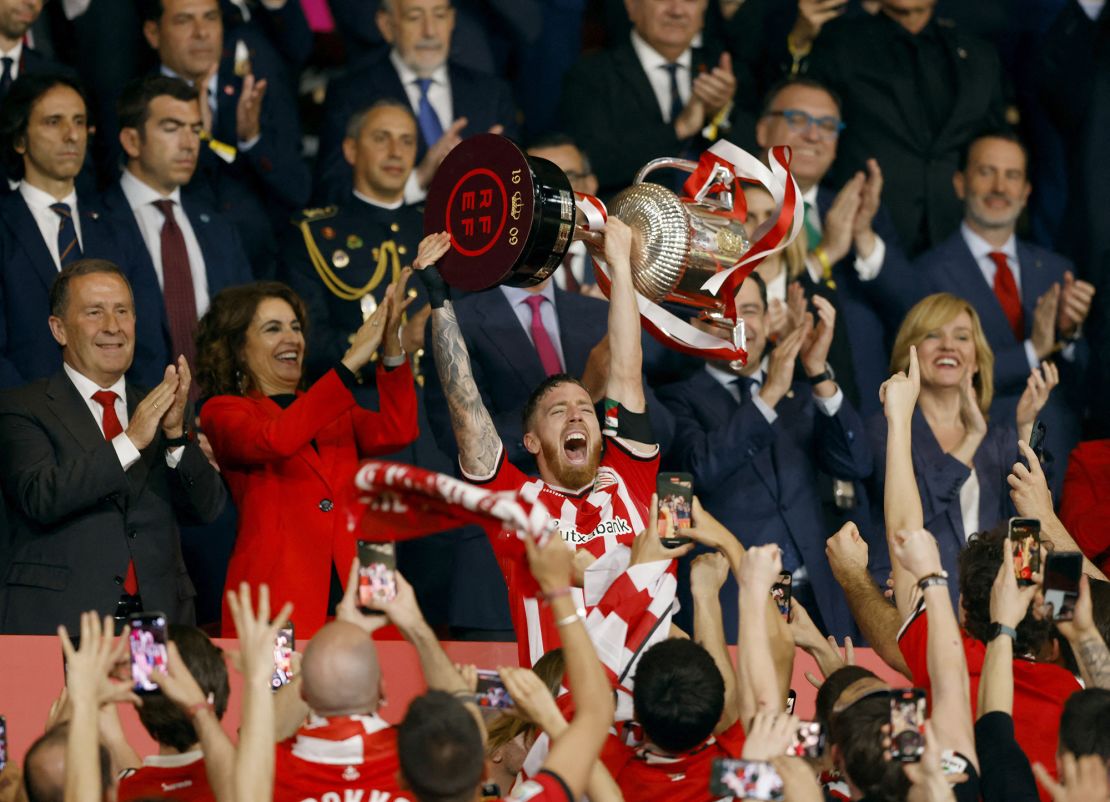
According to Athletic’s website, Gerrikabeitia was listening to a traditional Basque song with the lyrics: “Down the Nervión River, sailed a barge, rumba la rum …”
Barges had once been an essential part of Bilbao’s industry and carried iron ore through the city.
Subsequently, after Gerrikabeitia’s light-bulb moment, one of the barges was rechristened ‘Athletic’ and carried the players and trophy through the city – certainly a unique take on the open-top bus parades that most clubs around the world use to celebrate their titles.
But Athletic is undoubtedly one of the most unique football clubs in the world.
Athletic Club, its official name, is famous for employing the ‘cantera’ policy of only using soccer players that were born or home grown in the Basque Country, a region of around 21,000 square kilometers (roughly 8,100 square miles, or slightly smaller than New Jersey) that straddles the border of Spain and France.
It is one of the most autonomous regions in Spain and has its own police force, education system and language, according to the regional government’s website.
According to the 2019 Euskobarometer, a survey conducted by the University of the Basque Country that measures different levels of public opinion, 25% of Basques polled felt more Basque than Spanish, while 26% felt entirely Basque.
It is remarkable that the club not only continues with the policy in this era of eye-watering transfer fees and superstar footballers, but that it also remains competitive.
Bilbao’s eight La Liga titles are the fourth most in Spanish soccer history and only Barcelona has won more Spanish Cups than the 24 triumphs of the Zuri-gorriak (the Red and Whites), while the Basque club has also never suffered relegation from the top division of Spanish football.
The policy, though undoubtedly restrictive given football’s current financial climate, breeds a unique relationship of unity and oneness between players and fans unlike anywhere else.
This relationship was reflected in the emotional celebrations of the Williams brothers, Iñaki and Nico, who were born in the Basque Country to Ghanaian parents and have experienced the highs and lows – but mostly lows – of playing for Athletic Club together.
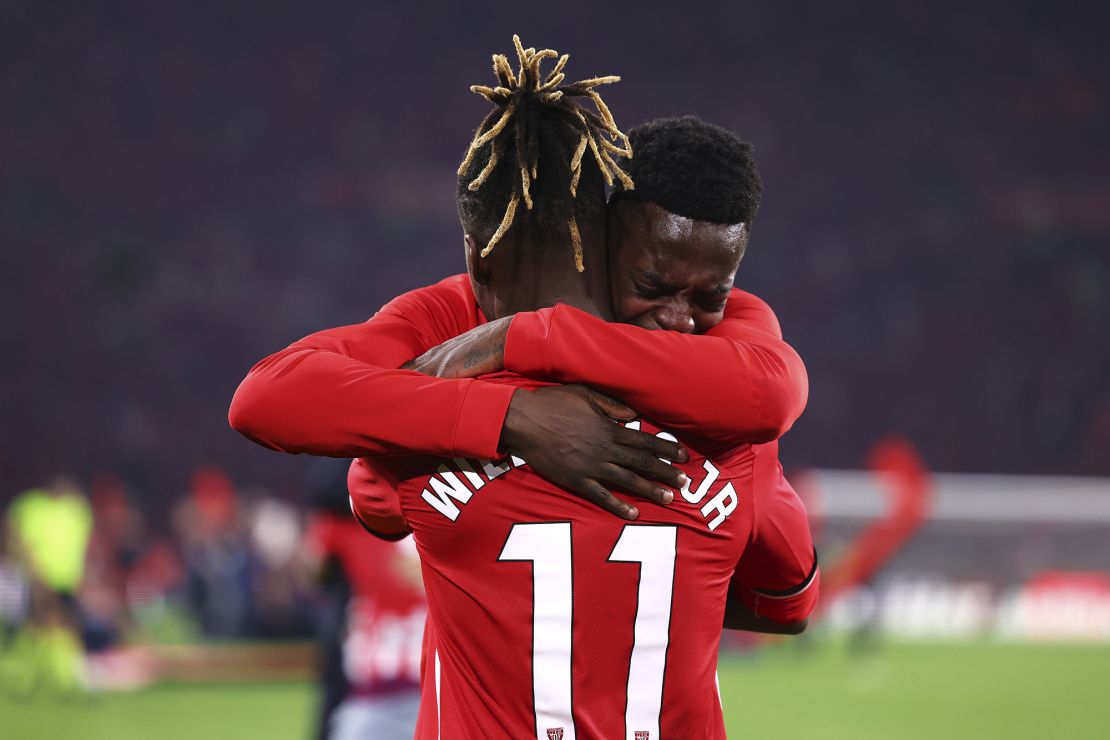
Iñaki grew up in the Basque city of Pamplona after his parents moved away from Bilbao and was spotted by Athletic while playing in the youth team of local club CD Pamplona. He joined the Lehoiak at the age of 18 and made his first team debut when he was 20.
Nico, meanwhile, was born in Pamplona and moved from the CD Pamplona youth team into Osasuna’s youth set up, before joining Athletic when he was 10 years old.
Bilbao has endured its fair share of heartbreak in recent years, losing its previous six finals – of which Iñaki has been a part of three – before Sunday’s cathartic victory.
The siblings shared a tearful embrace after the penalty shootout, before Iñaki planted a kiss on his younger brother’s cheek as they had their photos taken with the trophy.
More than 80,000 Athletic fans are estimated to have made the almost 900-kilometer (nearly 560-mile) journey from Bilbao to Seville for the Copa final, while the club’s iconic 53,000-capacity San Mamés stadium was also sold out with the match being shown on big screens around the ground.
“Athletic touches the sky,” wrote Spanish sports newspaper Diario AS after the victory. “Champions again 40 years later.”
On Monday, the iconic ‘Athletic’ was lowered into the Nervión as fans lined the river to catch a glimpse of a barge that was last used before many of them were even born.
“With enormous expectation, before dozens and dozens of fans and curious onlookers, the barge, an almost taboo word in Bilbao these days for fear of superstition, has risen today from the usual bed in which it has remained dormant for many years to return to the estuary,” Alfonso Herrán wrote in AS.
A taboo word no longer, La Gabarra will on Thursday once again sail down the Nervión as the city celebrates its new generation of local heroes.


